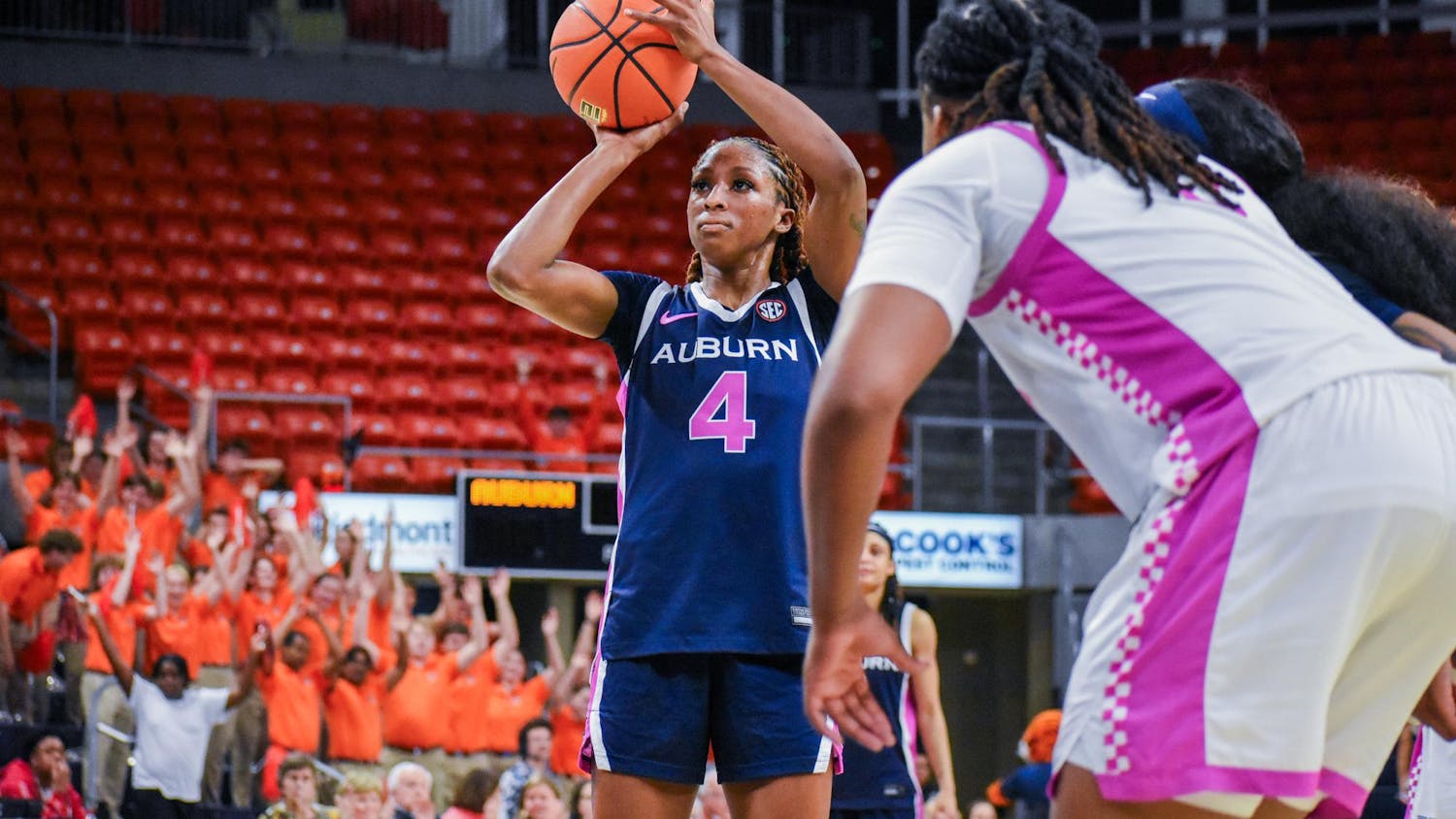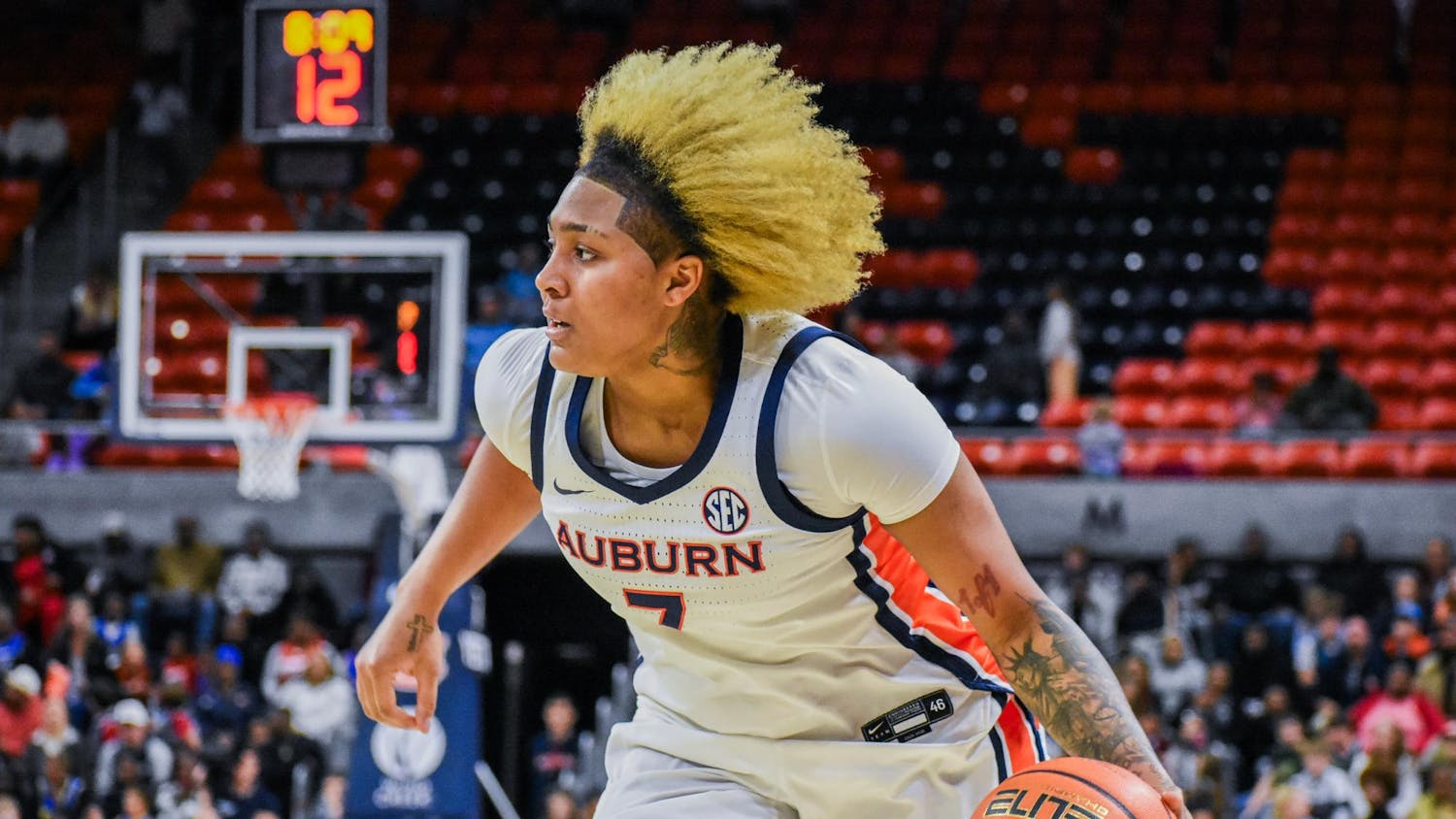A common trend for Auburn's offense under Gus Malzahn, both as an offensive coordinator and a head coach, has been its early-season identity crises. When Malzahn has had a new or unproven quarterback — which has been the case every season he's been on The Plains except for 2014 — it has generally resulted in some sluggish early performances.
In 2010, the Tigers struggled in some early big games, scoring just 17 points at Mississippi State and 3 first-half points against Clemson the following week before a roaring comeback was staged. Once Malzahn figured out how to basically funnel the offense through eventual Heisman winner Cam Newton, the Tigers took off. That season ended with a BCS title.
In 2013, similar early struggles, including a 14-point loss at LSU, were quickly forgotten once Malzahn's offense exploded with Nick Marshall's read-option attack. That season ended with a national title game berth.
There have also been seasons where the offense never truly found its identity, producing some disastrous results. 2011 and 2015 come to mind.
However, history shows that once Malzahn's offense finds its formula, the Tigers can become as formidable as any team in the country. Based on their past three performances, including a dominant 38-14 win at Mississippi State on Saturday, this season's squad might just be headed that direction.
After an interception on the third play of the game, Auburn was unstoppable on offense. The Tigers gained 335 yards in the first half — their most in a first half since the 2014 Iron Bowl — and rolled to a 35-0 lead that sent cowbell-wielding Bulldog supporters to the exits early.
The 35 first-half points — though six of those points were scored by defensive lineman Montravius Adams — were the most for Auburn in an SEC game since scoring 38 in 2003, also against Mississippi State.
All of this for a team that, three weeks into the season, had no offensive identity and no big-game success. So, why is Auburn's offense clicking now?
"We're a run-play action team, and when we are able to run the football, it opens up the pass," Malzahn said.
Auburn certainly did run the ball, rushing for 228 yards as a team. After starting running back Kerryon Johnson left the game in the first quarter with an injury, sophomore Kamryn Pettway stepped up, gaining 169 of Auburn's rushing yards on 39 carries, the fourth-most carries in Auburn history. He also scored three times.
It speaks volumes that Auburn's running game was so effective without Johnson, especially considering how successful the offense was without Pettway in the second half against LSU and in the first half against UL-Monroe. The Tigers know they have two dependable, durable runners they can count on.
"It says a lot about me and Kerryon," Pettway said. "I think we’re a good combination. When one of us goes down, the other one’s got to pick up the slack."
Several of Pettway's teammates referred to him as "a beast" after the game. Would Pettway describe himself as a beast?
"I seem to think I am," Pettway said with a radiant winner's grin. "I'm not cocky, though."
The other part of Auburn's formula, as Malzahn mentioned, is the passing game. When he needed to, redshirt sophomore quarterback Sean White burned the Bulldogs through the air, going 14-for-18 for 204 yards and a first-quarter touchdown to freshman Ryan Davis.
Most of White's work came in the first half, as 185 of his yards came before the halftime break.
“I just have confidence," White said. "I know when (offensive coordinator Rhett Lashlee) calls a play, we’re going to execute it and make it work. I think we did a good job today.”
Auburn's offense was far more conservative after halftime, gaining just 97 yards and scoring a late field goal. For the day, the Tigers racked up 432 yards of total offense. Since Lashlee took over Malzahn's playcalling duties, Auburn's offense has clicked, averaging 502.7 yards per game in its last three outings.
Despite the improved offensive numbers in the past three weeks, however, Pettway doesn't think the offense's identity discovery has much to do with the playcalling shift.
"(Malzahn and Lashlee) have pretty much the same style of coaching and playcalling," Pettway said. "But I think our focus and how we’ve been at practice was a big part of it."
Senior offensive lineman Alex Kozan doesn't see the change in playcalling as the direct reason for the offense finding its identity, either. He believes finding an identity, like everything in college football, is a team effort.
“Part of it is everybody gelling better and understanding the timing of the play," Kozan said. "Also, the coaches are putting us in good spots with their playcalling. I think it’s a little bit of both there: coaches and players becoming better.”
What the future holds for the 2016 Tigers is anyone's guess, but Kozan has noticed that the offense's midseason rise feels all too familiar to his freshman season.
"I don't think either team started off playing their best ball in game one, but every week in 2013, we improved," Kozan said. "Every week, I see the players getting more confident and the team playing together. Every week, I think we have a chance to get better and be in every game with a chance to win."
With a bye week coming up, the Tigers have an opportunity to improve their offense even further, which could be a scary thought for the SEC teams remaining on Auburn's schedule. With its offensive identity firmly set, the sky could be the limit for Malzahn's program once again.
Do you like this story? The Plainsman doesn't accept money from tuition or student fees, and we don't charge a subscription fee. But you can donate to support The Plainsman.




